The work of nurses and the contemporary relevance of the figure of St. Camillus de Lellis, the universal patron saint of the sick, of health-care workers and of hospitals whom the Church remembers every year on 14 July. These are the key points of the documentary entitled ‘Lives at Stake – the Role of St. Camillus de Lellis’ produced by Telepace in cooperation with the communications office of the Camillian Province of Sicily and Naples.
Mission
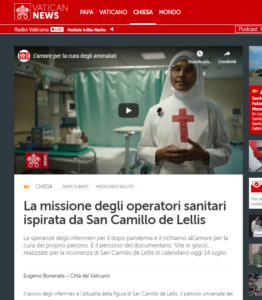 The pathway of this documentary, placed in the diary of initiatives in honour of our saint, begins with the testimonies of various nurses of the Vannini Hospital of Rome. The subject is daily life, hope for the future and above all the vocation that forms the basis of their work. ‘This’, they say, ‘is not only a profession – it is an authentic mission exercised by people who every day give of their own lives for other people, assuring professionalism in care for the sick’
The pathway of this documentary, placed in the diary of initiatives in honour of our saint, begins with the testimonies of various nurses of the Vannini Hospital of Rome. The subject is daily life, hope for the future and above all the vocation that forms the basis of their work. ‘This’, they say, ‘is not only a profession – it is an authentic mission exercised by people who every day give of their own lives for other people, assuring professionalism in care for the sick’
Normal people
The Pope cited them a number of times during the pandemic in his homilies at the morning Holy Mass celebrated in Casa Santa Marta. Public opinion has defined them as ‘heroes’ because of their commitment in the field in past months like, indeed, all workers in the health-care sector and other professional categories. Nurses, however, emphasise that they have done nothing extraordinary but only their duty and observe that they work in the front line every day, distant from the spotlights that were turned on during the acute stage of the covid-19 emergency.
Daily commitment
In hospital wards conditions of work are especially intense, with inevitable repercussions for a person’s private life. Evening rounds, including nights; psycho-physical and emotional stress; and salaries and rewards that are not always adequate. However, the perception of nurses has changed enormously recently and this, as well, leads this category to look forward with hope, trusting in an improvement in the overall picture.
Inspiration
This documentary, which lasts about twenty minutes, also looks at the dimension of charity. And in a special way it observes that the commitment of all workers of the health-care sector has very precise roots. One is dealing here with the charism of St. Camillus who professed love for care and exhorted his followers to put more heart in their hands in order to care for the sick. In the year 1613 this saint wrote his ‘rules to serve the sick with all perfection’, one of the first testimonies on the techniques of nursing which is now kept in the Archives of State in Milan.
The fourth vow
Another fixed point for Camillian religious is the so-named fourth vow which was the wish of the founder of the Order. It refers to care for the sick ‘even at the risk to our life’, that is to say without sparing one’s own existence. ‘Even without knowing this, all health-care workers bear witness to this rule’, observes Brother Carlo Mangione, a Camillian religious and general director of the ‘St. Mary of Pity’ Hospital in Casoria, in the Province of Naples.
Veneration
Amongst anecdotes on the biography of our saint and reflections of a spiritual character, thanks to the involvement of some chaplains of the St. Camillus-Forlanini Hospital of Rome, the documentary also addresses the veneration of this figure and concentrates its attention above all on the Church of St. Mary Magdalene of Rome where some of the relics of St. Camillus are kept.
Comfort
‘This place’, explains Father Gianfranco Lunardon, the Secretary General of the Camillians, ‘is the destination of very many pilgrims: sick people who come to bring their anxieties, sufferings and hopes; people who care for the sick; members of the faithful who in their circle of affections have someone who is afflicted not only by evident illness but also by disturbances such as depression, tiredness and frustration’.



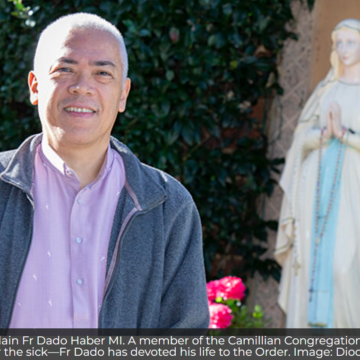


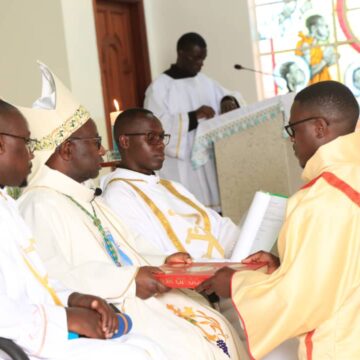
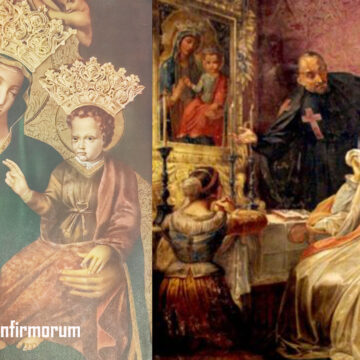

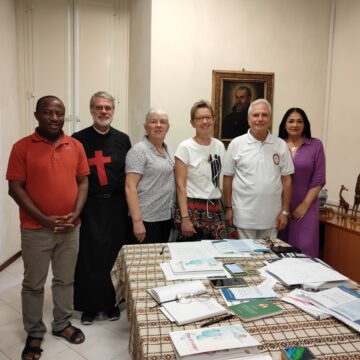

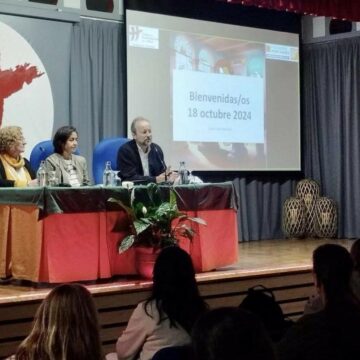

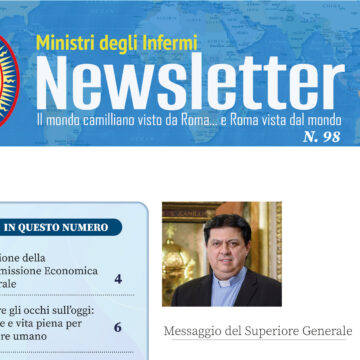
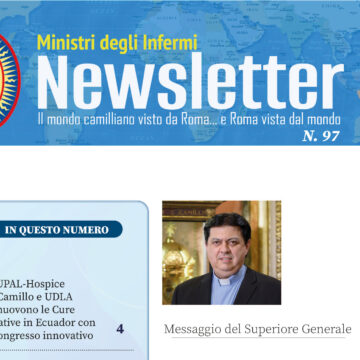
Camillians on Facebook
Camillians on Twitter
Camillians on Instagram